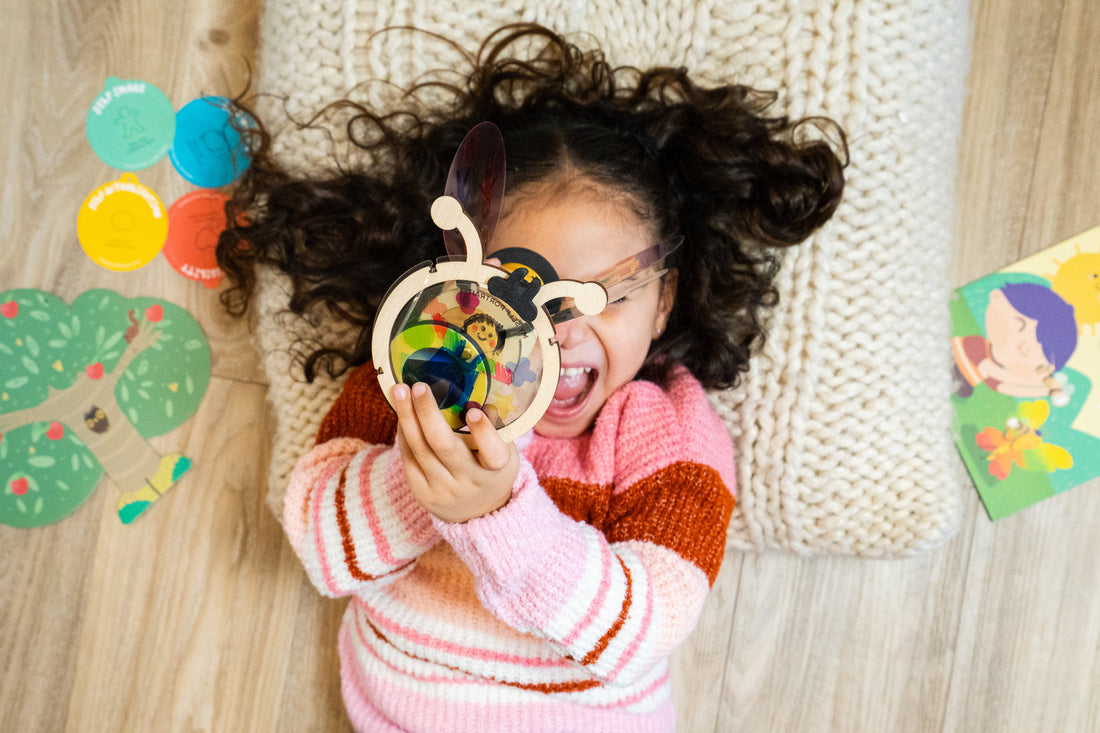
Social-Emotional Learning for 5-Year-Olds: Building Confidence and Friendships
Understanding Emotional Learning for 5-Year-Olds
Developing Emotion Regulation Skills
At age 5, your little one already has a few years of experience in emotional development. Emotions are not as scary and overwhelming as they were before. In fact, they likely developed some skills to help them regulate their emotions a bit better and find it more comfortable talking about their emotions. Though they have not yet completely mastered their capabilities in controlling their impulses, they are getting better at it. Rather than demanding to play with the toy right now, they have gained patience and will wait for their turn and even ask first before taking something that doesn't belong to them.
With their improved emotion regulation skills, you'll notice that when your five-year-old gets mad, rather than physically throwing a tantrum, they are more likely to express their anger and frustration through words. Though it seems like an upgrade from tantrums that never fail to cause a scene, make sure you teach your little ones appropriate ways to express their anger, as words can be extremely harmful.
Nurturing Independence and Self-Confidence
As your little ones get older, it's natural for them to crave more and more independence. Though it may sound like a contradiction, trust us on this, the best way to nurture your little ones' independence and self-confidence is by keeping their life fairly structured. Make sure you allow them some room to make choices but don't overwhelm them with endless choices. For example, let them choose between two different lunch options instead of offering them an endless amount of options.
During moments they ask for permission to do something that you don't agree with, stand firm in your stance but also try letting them know your perspective and hear them out. Allowing your growing little ones choices within a structured framework will help them boost their self-confidence while also letting them know they are safe and secure.
Encouraging Friendship and Social Norms
At age 5, it's natural for many kids to prefer hanging around other kids their age versus adults. During this period, you may hear your little one use the term "best friend" as they start showing preferences for who they spend their time with. As a parent, you must help your little ones nurture these friendships by encouraging them to set up playdates. Because somehow, being able to "show off" their house and toys will help them build their self-esteem and confidence.
As 5 years old, they start understanding and internalizing social norms meaning they understand the concept of taking turns and fairness, as it helps ensure that other kids will continue to play with them. Being older, the internalized social norms they developed start slowly influencing their behavior and decision.
Dealing with Conflicts and Negative Influences
Though they began understanding social norms, it doesn't mean that all trouble is now avoided. Don't be too surprised if you hear your little ones occasionally arguing with others. Though it's normal and just a part of what being five-year-old entails, still be aware of those behaviors as you don't want your little one to excessively pick on other kids.
With your little ones developing close relationships with their friends, be aware that the kids your little one surrounds themselves with now play an influence on them. Though ideally, they would not negatively influence your little ones, be aware that some behaviors that do not sit right with you may be acceptable to other parents. That being said, don't be shocked if your little ones start talking back to you and displaying some unwanted behaviors. During these instances, take a deep breath and stay calm. A huge emotional reaction will only make matters worse. Don't forget your little ones model your behaviors as much as they model others!
What does Social-Emotional Learning Looks Like in My 5-Year-Old?
My kid...
- Show some awareness of moral reasoning, such as "fairness," and good or bad behavior
- Develop friendships
- Express more awareness of other people's feelings
- Enjoy imaginative play with other children, such as dress-up or house
- Get better at sharing and taking turns with other children
- Enjoy playing games, but might change the rules as he goes
- Stick with a difficult task for a longer period (controlling frustration or anger better)
- Show an understanding of right and wrong
- Listen while others are speaking
- Play games with simple rules
Red Flags for Social-Emotional Development at 5-Years-Old
By the time your kid reaches age 5, if you notice these types of behavior, consider paying more attention to what efforts are going into helping the kid develop social-emotionally. If the extent of their behaviors worries you, you can always talk to your doctor, a health professional, or a psychologist.
My kid...
- Is not interested in playing with other children
- Is not able to share or take turns with other children
- Wants to be dependent on their caregivers for everything
- Is extremely "rigid" about routines, and becomes extremely upset when things are changed
- Has extreme difficulty separating from you
- Is too passive or fearful, and does not want to try things other children their age are doing
- Has extreme fears that interfere with daily activities





 Most Popular
Most Popular
